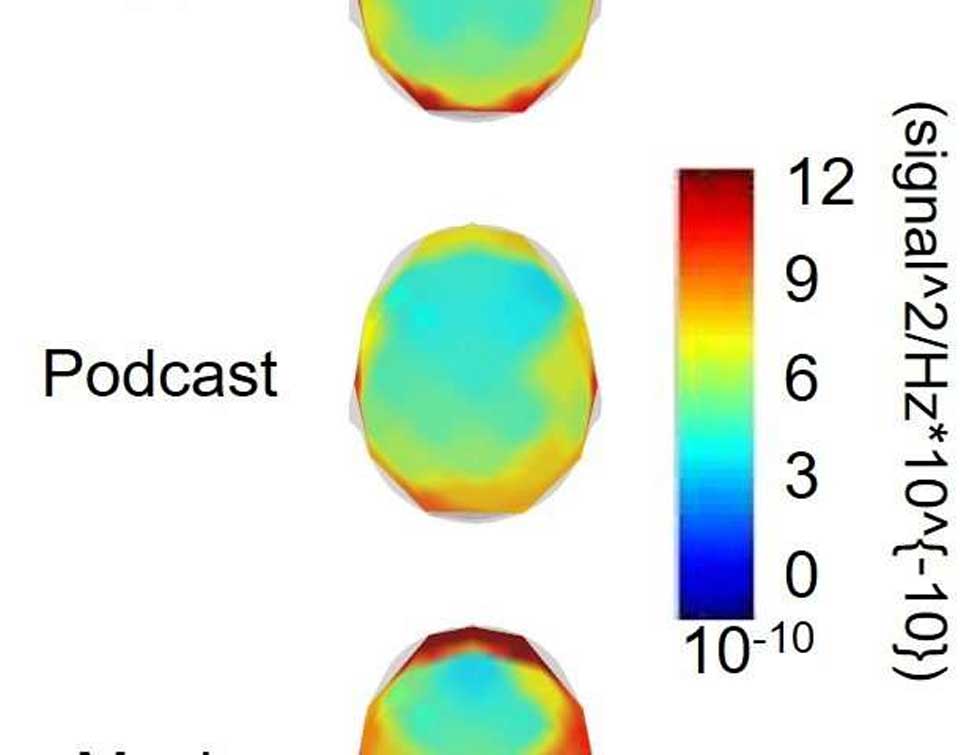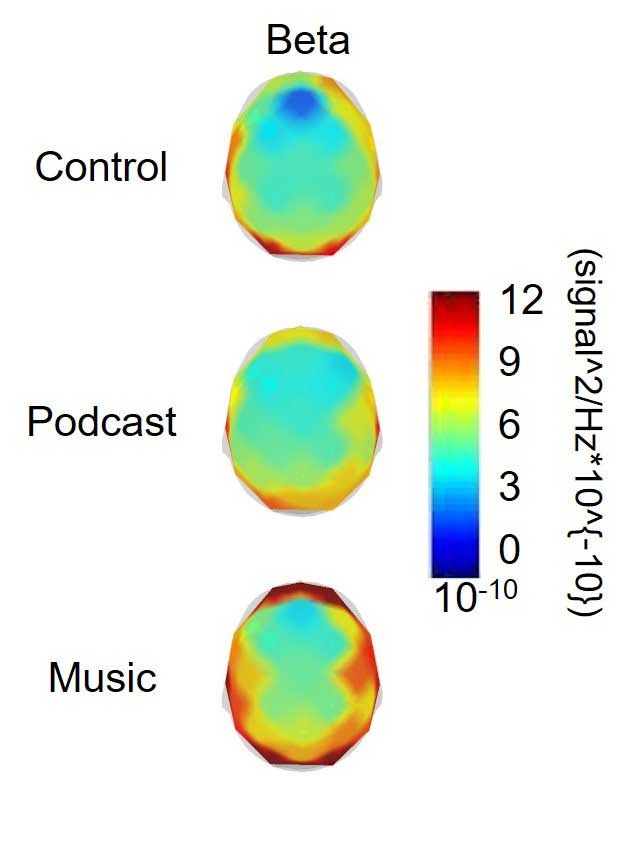Portable EEG Machine Shows How Music Affects The Brain During Exercise
Anyone who works out with music knows that listening to music makes workouts more enjoyable. Scientists have likened music to a performance-enhancing drug. Precise measurement of how music triggers the brain during exercise has been difficult to get because of body movements, but researchers have now been able to take measurements using a portable EEG machine.
The machine has special shielding technology that allowed the scientists to measure three types of brain waves during exercise. The team measures the brain and compared electrical feedback while exercising to music, a podcast, or with no soundtrack.
What they found was that music is able to rearrange the brain electrical frequency to cause a drop-in focus, but an enhancement in enjoyment to the tune of 28% more than silence, and 13% more than a podcast. During the tests the researchers had 24 people walk 400m on an outdoor track listening to either a 6-minute blast of "Happy" by Pharrell Williams, TED Radio Hours talk about cities or no sounds at all.
The music distracted the walker's focus but boosted energy levels and enjoyment more than the TED podcast and not listening to anything. The podcast didn't affect how tired the walkers felt or their happiness. Listening to a podcast was more enjoyable than walking without a soundtrack according to the researchers.
These feelings were correlated with brainwaves taken using the portable EEG looking at frequencies like lower-alpha, upper-alpha, and sensorimotor rhythm and beta. The scientists found that the mechanisms behind these effects appear to be due to a boost in beta frequencies in the frontal and frontal-central regions of the cortex.
SOURCE: MedicalXpress


